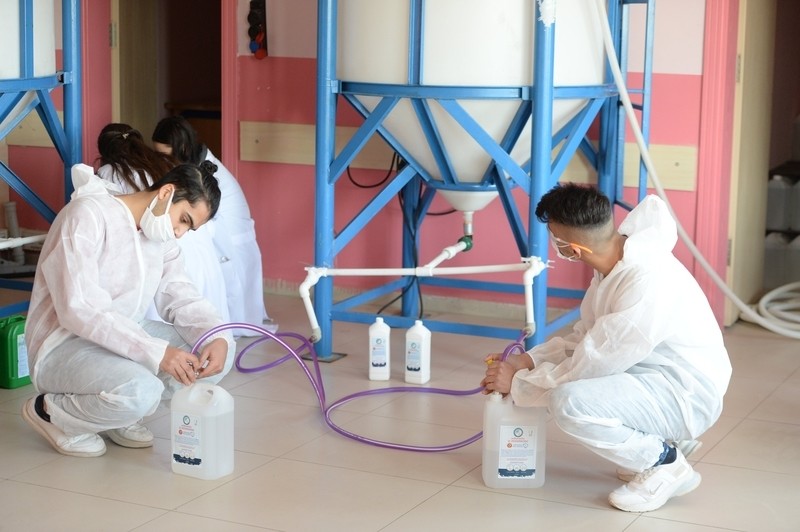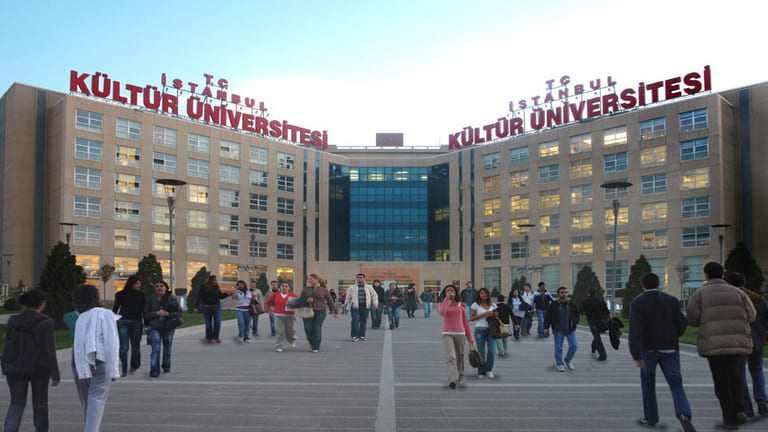The education system in Turkey, overseen by the Ministry of National Education, offers a diverse and comprehensive structure ranging from pre-school education to higher education institutions.
This system, blending traditional and modern educational approaches, caters to a broad age group, preparing Turkish students for the challenges of the contemporary world.
Primary and Secondary Education

Turkish education begins with pre-primary education, usually for children aged four to six, followed by compulsory primary education in primary schools.
Primary school enrollment is mandatory for children from age six, marking the start of eight years of basic education, encompassing both primary and secondary education.
General secondary education in Turkey is provided in various forms, including:
- Anatolian high schools
- Science high schools
- Vocational high schools
- General high schools
Each caters to different educational needs and interests.
Technical and Vocational Education

Technical and vocational education in Turkey is a cornerstone of the country's education system, playing a pivotal role in equipping students with specialized skills and knowledge essential for technical and vocational roles.
The technical education institutions in Turkey are instrumental in offering specialized training programs, particularly in fields such as computer science and veterinary medicine.
These programs are designed to meet the demands of industries that require highly skilled professionals. Moreover, technical and vocational high schools contribute significantly to the educational landscape by providing students with practical skills and academic knowledge.
The curriculum in these schools is crafted to ensure a well-rounded education that prepares students for specific technical and vocational roles in diverse industries.
This approach not only enhances the employability of graduates but also addresses the skill gaps prevalent in various sectors of the economy.
The emphasis on hands-on training and real-world applications distinguishes technical and vocational education in Turkey, creating a seamless pathway for students to transition into the workforce.
As an integral part of the Turkish education system, technical and vocational education not only meets the needs of the labor market but also contributes to the country's overall economic development by fostering a skilled and adaptable workforce.
Higher Education

Higher education in Turkey presents a diverse and robust landscape, catering to the academic needs of students across various disciplines.
The educational system encompasses public, private, and foundation universities, providing students with various options for pursuing their desired academic paths.
These institutions offer a comprehensive range of academic programs, spanning associate degree programs, bachelor's degree programs, graduate programs, and doctoral programs.
The flexibility and variety in the educational offerings allow students to tailor their educational journey to their specific interests and career aspirations.
Turkish universities have earned global recognition for outstanding academic programs, particularly in social sciences, engineering, and medicine.
Renowned for their commitment to excellence, these institutions attract many international students seeking world-class education in a culturally rich environment.
Including English-language programs further facilitates the integration of international students into the academic community, fostering a diverse and inclusive learning environment.
The emphasis on research and innovation, coupled with the vibrant cultural atmosphere, makes higher education in Turkey an attractive option for both domestic and international students seeking a well-rounded and globally competitive educational experience.
Distance Education and Non-Formal Education

Distance education programs have gained popularity in Turkey, providing flexible learning options for those who cannot attend traditional classes.
These programs, offered by various educational institutions, ensure that education in Turkey is accessible to all. Additionally, non-formal education options are available for those seeking to enhance their skills or knowledge without enrolling in formal degree programs.
Religious and Cultural Education
Optional religious education is also part of the Turkish education system, reflecting the country's cultural development and heritage. This aspect of education allows for a deeper understanding of Turkey's rich history and cultural diversity.
International and Cultural Dimension
The Turkish education system is also notable for its international dimension—many Turkish universities partner with universities worldwide, facilitating exchange programs and research collaborations.
International students in Turkish educational institutions further enhance this international perspective, contributing to cultural exchange and global understanding.
Beyond fostering academic collaborations, Turkish universities actively engage in various initiatives that amplify their educational offerings' international and cultural dimensions.
These institutions frequently organize international conferences, seminars, and workshops, creating platforms for scholars and students from various backgrounds to come together and exchange ideas.
The emphasis on cross-cultural understanding is evident not only in the curriculum but also in extracurricular activities and events that celebrate the diversity of the student body.
Turkish universities often host cultural festivals, language exchange programs, and international student clubs, providing an immersive experience for local and international students.
This commitment to a global perspective is also reflected in the language of instruction, with many programs offered in English, ensuring that international students can seamlessly integrate into the academic community.
Additionally, the Turkish government offers scholarships to international students, further promoting educational inclusivity and encouraging a rich tapestry of cultures within university campuses.
Study in Turkey for Foreigners

Studying in Turkey offers a unique and enriching experience for foreigners seeking quality education in a vibrant cultural setting. Turkey has become an increasingly popular destination for international students with its diverse range of universities and programs.
The country boasts a rich historical and cultural heritage, providing a dynamic backdrop for academic pursuits. Turkish universities are renowned for their high academic standards and modern facilities, offering programs in various disciplines, including engineering, business, arts, and sciences.
One of the critical advantages for international students is the availability of numerous scholarships, making education in Turkey affordable and accessible.
The country's strategic location at the crossroads of Europe and Asia further enhances students' international exposure during their studies.
Turkey's warm hospitality, stunning landscapes, and a blend of tradition and modernity create an ideal environment for personal growth and cultural exploration.
With English-language programs widely available, language barriers are minimized, ensuring a smooth transition for international students.
Choosing Turkey as a study destination opens up many opportunities for international students, combining academic excellence with a rich cultural experience.
Universities in Turkey

Turkey is home to a diverse array of universities that cater to the academic needs of both local and international students. The country boasts a mix of public and private institutions, each offering programs designed to meet global standards.
Some of the prestigious universities in Turkey include Istanbul Technical University, Bogazici University, and Middle East Technical University, known for their excellence in engineering and technology.
Additionally, universities such as Sabanci University and Bilkent University are recognized for their strong emphasis on research and innovation. Many Turkish universities have forged international partnerships, fostering collaborations with institutions worldwide and providing students with a global education.
The faculties at these universities are often staffed by accomplished professors and researchers, ensuring high academic quality.
With state-of-the-art facilities, modern campuses, and a commitment to student success, Turkish universities provide an ideal environment for pursuing higher education and preparing students for successful careers on a global scale.
Read Also: Advanced Education in Istanbul Universities and Schools
Education costs in Türkiye
Education costs in Türkiye are notably advantageous, particularly for citizens holding a Turkish passport. For them, education is free up to university level, a benefit that significantly eases the financial burden on families.
This policy not only promotes accessibility but also fosters a culture of learning and development within the country. Moreover, even for international students, the cost of education in Türkiye remains relatively affordable compared to many other countries. This combination of accessibility and affordability makes Türkiye an attractive destination for those seeking quality education without the hefty price tag often associated with studying abroad.
Invest in Apartments Near Universities
Investing in apartments near universities in Turkey presents a compelling opportunity for real estate investors seeking stability and high potential returns.
The proximity to universities ensures a steady demand for housing from students, faculty, and staff, creating a consistent rental market.
Turkey's growing reputation as an educational hub attracts a continuous influx of domestic and international students, contributing to the sustained demand for accommodation.
Apartments near universities not only cater to the basic housing needs of students but also serve as attractive options for professionals working in the academic sector.
This dual demand factor positions these properties as lucrative investment assets. Additionally, the appreciation potential is considerable, given the increasing popularity of apartments near the university as desirable residential areas.
As the real estate market in Turkey continues to thrive, investing in apartments near universities offers a reliable rental income stream.
It holds the promise of long-term capital appreciation, making it a strategic and rewarding venture for discerning investors in the real estate sector.
Conclusion
The education system in Turkey, with its mix of primary, secondary, and higher education institutions, provides a well-rounded and inclusive approach to education.
From primary school to university, Turkish students are offered opportunities for academic growth, technical skills development, and cultural enrichment.
The diversity of educational institutions, programs, and approaches ensures that the Turkish education system meets the needs of its students, preparing them to contribute effectively to the national and global community.
Related Articles:
What do you Know about the Bosphorus Bridge - Istanbul?
The most Important Airports in Türkiye


